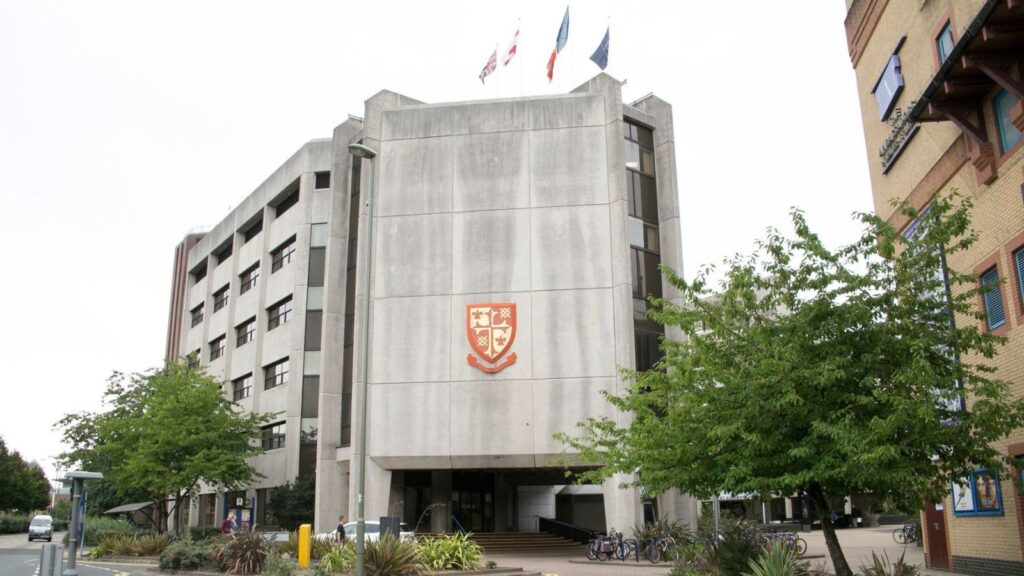
Woking Borough Council has adopted a plan to deliver a “smaller, more efficient organisation” and appointed a new interim section 151 officer.
Eugene Walker will serve as interim director of finance and s151 officer with effect from 1 September 2023. He specialises in providing interim and advisory services, and spent more than 24 years at Sheffield City Council in a variety of roles, including director of finance, executive director and acting CEO.
Walker has previously been employed by Woking Borough Council on a consultancy basis, supporting the shareholder advisory group, the council body that oversees its 24 companies.
The appointment is for six months. Another interim appointment has been made after no suitable permanent candidate could be found. “At this point in time it would be very difficult to recruit a permanent section 151 officer,” said Ann-Marie Barker, leader of Woking Borough Council, speaking at an extraordinary meeting of full council this week (22 August). “During the autumn, as the financial position becomes clearer, the search will begin for a permanent postholder.”
At the extraordinary meeting, there was some criticism of the appointment process among councillors about there only being one candidate for the role and a perceived lack of information and transparency. Calls were made for a permanent appointment to be made in six months rather than having a “revolving door” of interim appointments.
The council’s current interim director of finance and s151 officer, Brendan Arnold, will be leaving Woking at the end of his contract term on 31 August.
The authority said Walker’s appointment would “bring additional strategic finance capacity to the council to lead the Medium Term Financial Strategy work and lead the financial recovery workstream in the Improvement and Recovery Plan”.
That plan aims to tackle the “severe” financial challenges facing Woking Borough Council and bring a return to meeting best value duty, and has been adopted following the extraordinary meeting.
Among the list of actions included in it, the plan commits to deliver a Medium-Term Financial Plan to close the £11m ‘business as usual’ budget gap for 2024/25, reduce outstanding debts through asset rationalisation and commercial strategies, strengthen governance underpinning financial decision-making, and agree financial support from government.
The plan draws upon the Secretary of State’s directions published on 25 May 2023 following the issuance of a section 114 notice, as well as the recommendations of the non-statutory external assurance review into the council’s finances, investments and related governance.

A statement from Woking Borough Council on the plan read: “The council faces an extremely serious financial shortfall owing to its historic investment strategy that has resulted in unaffordable borrowing, inadequate steps to repay that borrowing and high values of irrecoverable loans. Critically, the council can no longer balance its budget for the current financial year and subsequent years without action.
“The three-to-five year plan details the actions that the council will undertake, together with milestones and delivery targets to measure progress. It seeks to deliver sustained improvements in financial management, governance and commercial functions, and organisational effectiveness.”
The authority said the plan would “contribute towards mitigating the £1.2bn deficit in financial year 2023/24 that was set out in the section 114 notice”.
15th Annual LATIF & FDs’ Summit – 19 September 2023
250+ Delegates from Local Government & Investment
Ann-Marie Barker, leader of Woking Borough Council, said: “The adoption of the Improvement and Recovery Plan is of vital importance. It assures government that we are committed to delivering the change needed to meet our best value duty and tackle the significant financial challenges at pace and with urgency.
“As we know my administration inherited this very serious financial position. I want to be very clear that the future course we must all follow contains many challenges. It requires determination and resolve by councillors, the staff that support them and the borough’s residents. That said, I believe this is a journey we can achieve as we move forward in the months ahead.
“There is no doubt that major savings are required. It is inevitable that over the next five years there will be substantial change to the services this council delivers to residents as it becomes a smaller, more efficient council focused on delivering core services to residents. I want to be very clear we have little room for manoeuvre and we must take the majority of identified savings.
“To this end we must become a council that lives within its means, whilst building confidence with the government and rebuilding trust with local people. I am steadfast in my commitment to deliver this plan necessary to achieve financial stability and secure services for the future.”
The improvement plan is considered a live working document, taking account of progress and relevant changes tracked through monitoring. It will be used to update the government’s commissioning team, who will update the Secretary of State regularly on progress against key objectives.
—————
FREE weekly newsletters
Subscribe to Room151 Newsletters
Follow us on LinkedIn
Follow us here
Monthly Online Treasury Briefing
Sign up here with a .gov.uk email address
Room151 Webinars
Visit the Room151 channel














